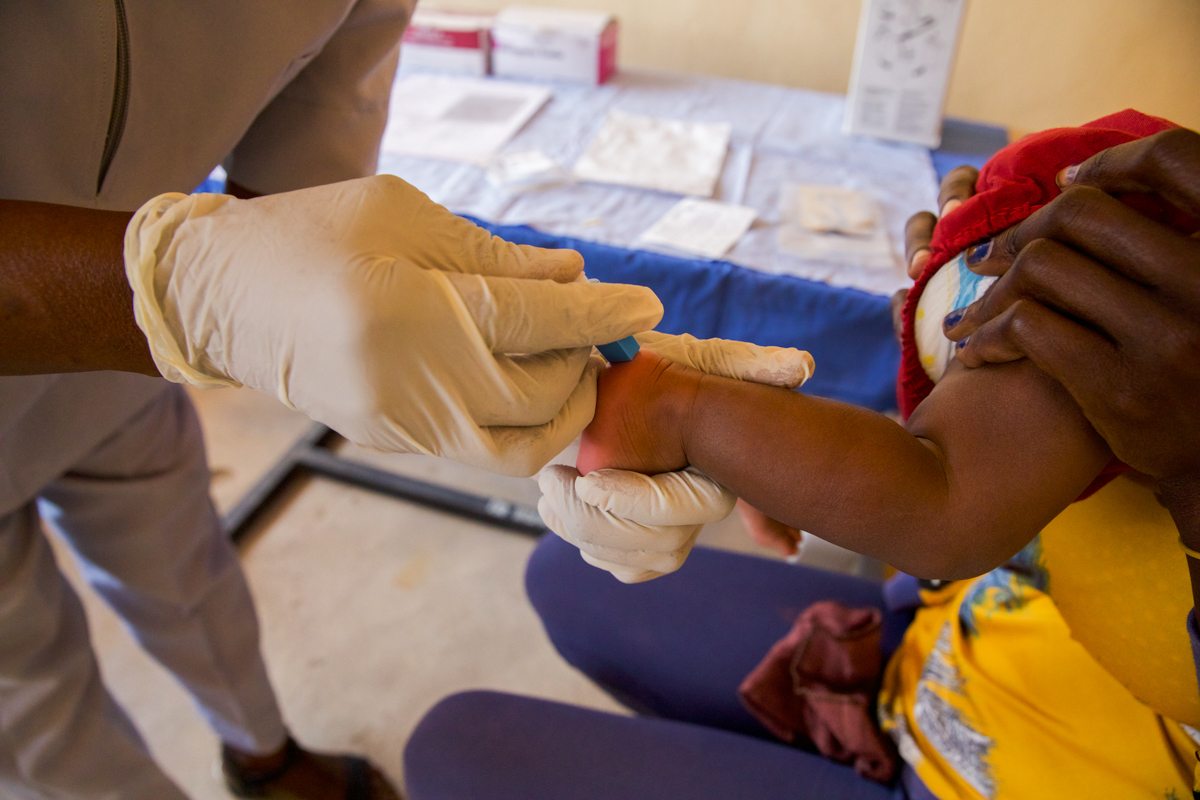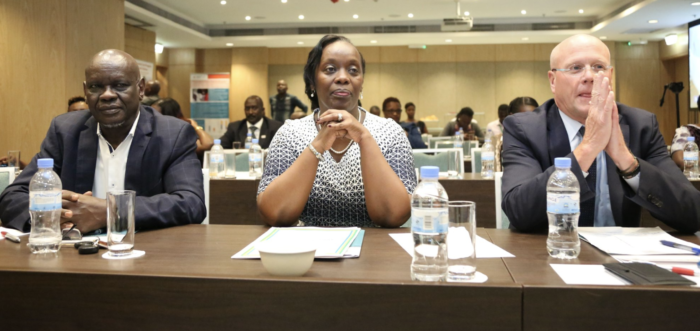 On June 20th , the Elizabeth Glaser Pediatric AIDS Foundation (EGPAF) marked the end of its fruitful 19-year partnership with the Ministry of Health in Rwanda while celebrating the milestones of a transformational point-of-care early infant diagnosis (POC EID) project.
On June 20th , the Elizabeth Glaser Pediatric AIDS Foundation (EGPAF) marked the end of its fruitful 19-year partnership with the Ministry of Health in Rwanda while celebrating the milestones of a transformational point-of-care early infant diagnosis (POC EID) project.
“While it’s with some sadness that we conclude our current partnership, it is also with deep gratitude and confidence in Rwanda’s commitment to end AIDS,” said Charles Lyons, EGPAF president & CEO. “As a mission driven organization that seeks to end AIDS in children, we regard Rwanda’s success as an indication of our very purpose.”
Despite the suffering caused by genocide in 1994, Rwanda has mounted one of the most impressive HIV responses in the world.
Rwanda has virtually eliminated the mother to child transmission of HIV, reducing the mother-to-child HIV transmission rate to 1.5%, far below the global target of 5%. According to Rwanda Biomedical Centre data, the country has also surpassed the UNAIDS 90-90-90 target: 91% of people with HIV know their status, 92% of those diagnosed with HIV infection receiving sustained antiretroviral therapy, and 91% of all people receiving antiretroviral therapy have reduced their viral load to undetectable levels.
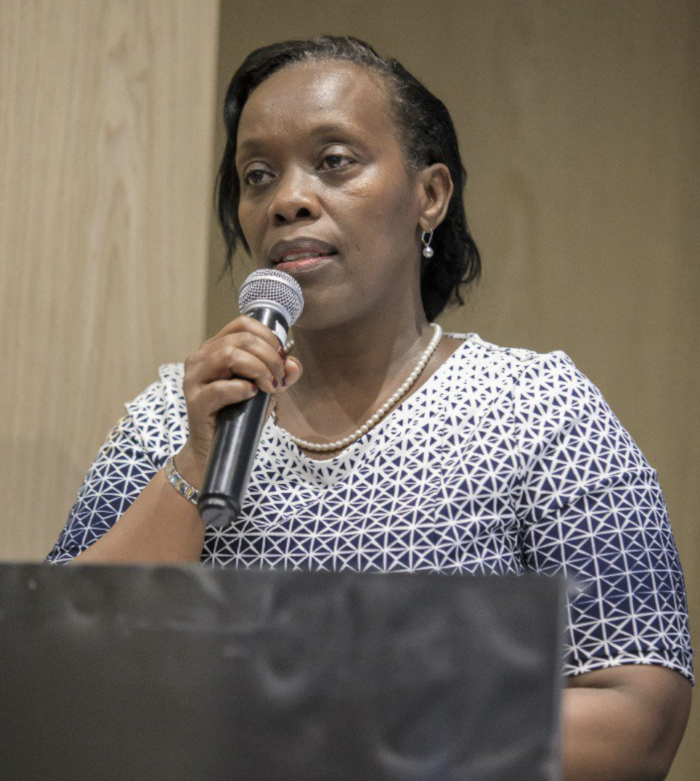 “Political leadership and the government’s belief in and partnerships and collaborative work approaches have all played a critical role in Rwanda’s progress,” said Rwanda Minister of Health Dr. Giane Gashumba. “President and First Lady Kagame are are committed to ensuring that everyone with HIV who needs treatment gets it and gets it in good time.”
“Political leadership and the government’s belief in and partnerships and collaborative work approaches have all played a critical role in Rwanda’s progress,” said Rwanda Minister of Health Dr. Giane Gashumba. “President and First Lady Kagame are are committed to ensuring that everyone with HIV who needs treatment gets it and gets it in good time.”
Rwanda took a keen interest in prevention of mother to child transmission of HIV early in the 1990s after studies showed the risk of mother to child transmission could be reduced with drugs such as AZT and Nevirapin.
“Despite securing funding to quantify the risk of mother to child transmission through breast milk, implementation did not happen due to the 1994 genocide,” said Dr. Etienne Karita, EGPAF’s first Technical Director in Rwanda and also one of the pioneering HIV doctors in Rwanda.
In 2000, EGPAF began providing technical and financial assistance to the Treatment and Research AIDS Center in Kigali to help start Rwanda’s PMTCT program. EGPAF expanded its role in 2004—through the U.S. President’s Emergency Plan for AIDS Relief (PEPFAR)—to implement a host of integrated health services, sharing the goal of the Rwanda government to provide universal access to HIV services by 2020.
In 2013, EGPAF launched a the landmark Kabeho study that evaluated treatment outcomes for mothers and infants. The three-year research project demonstrated that—with proper interventions—mother-to-child transmission of HIV can be virtually eliminated.
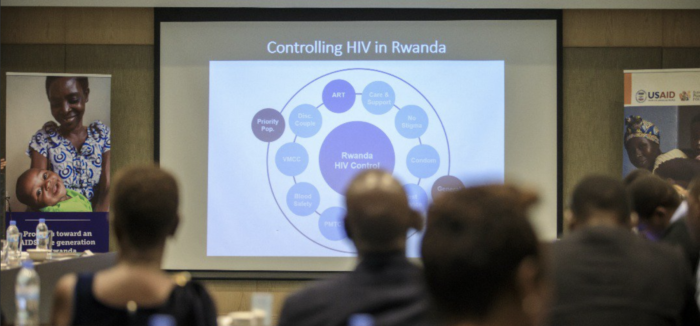 Since 2016, EGPAF-Rwanda has focused on the health of newborns. For HIV-positive children, HIV testing before two months of age, prompt return of test results, and rapid initiation of treatment are critical to survival. But data from nine African countries, including Rwanda, revealed that only half of infants exposed to HIV were tested in 2015.
Since 2016, EGPAF-Rwanda has focused on the health of newborns. For HIV-positive children, HIV testing before two months of age, prompt return of test results, and rapid initiation of treatment are critical to survival. But data from nine African countries, including Rwanda, revealed that only half of infants exposed to HIV were tested in 2015.
In response, EGPAF worked with Unitaid and other global health partners to roll out a new point-of-care early infant diagnosis (POC EID) project in nine African countries, including Rwanda.
Baseline data taken prior to the arrival of POC EID showed turnaround times of up to 34 days to get infants’ HIV test results back to the caregiver, with only 41% of families receiving results within 30 days.
“These technologies allow non-specialized healthcare workers to run tests for HIV in decentralized clinics that can return results within one hour,” said Dr. Angelique Fundi, EGPAF-Rwanda’s country program manager.
As our project in Rwanda closes, results from the 141 health facilities showed that 99.6% of caregivers received infant test results within a one day, and 98.2% of those infants who tested HIV-positive received life-saving treatment within two days.
“Point-of-care early infant diagnosis technology is key in the elimination of pediatric AIDS,” said Unitaid Executive Director Lelio Marmora.
“Children can now access lifesaving care earlier. Unitaid is proud to have introduced, with EGPAF, this game-changer in Rwanda and in more than 15 countries in Africa.”
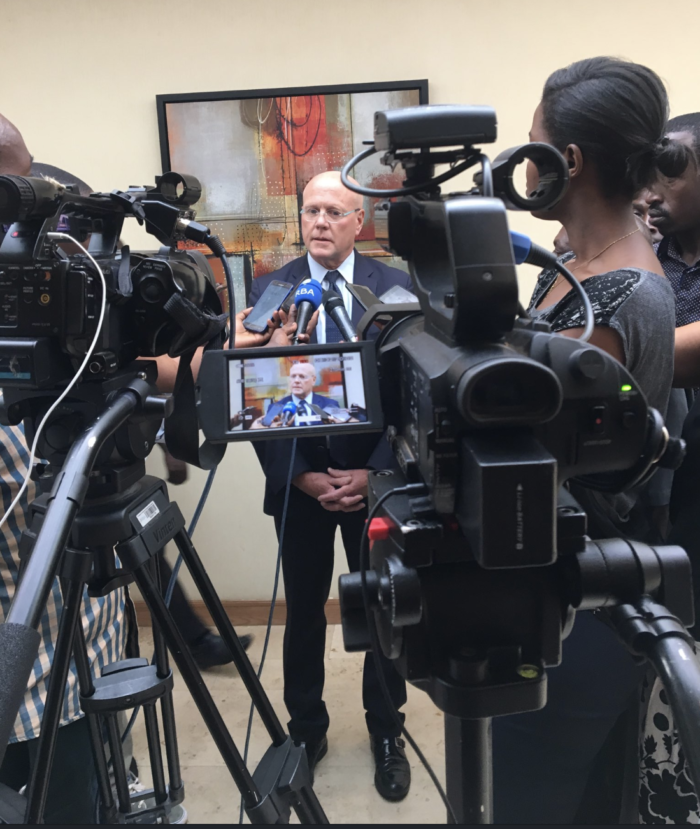
This technology has been so successful in identifying HIV in infants and swiftly linking them to treatment that it was integrated into Rwanda’s HIV and AIDS National Strategic Plan.
“What Rwanda has accomplished today was just a dream 10 years ago when the Global Plan to end AIDS in children and keep mothers alive was initiated,” said EGPAF President and CEO Charles Lyons.




